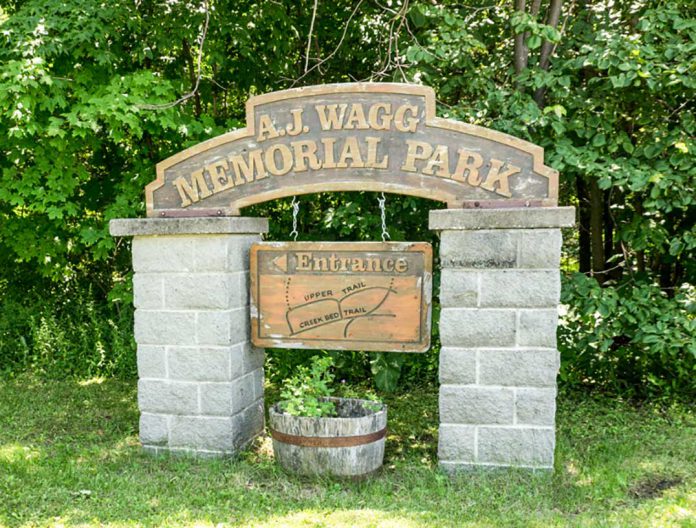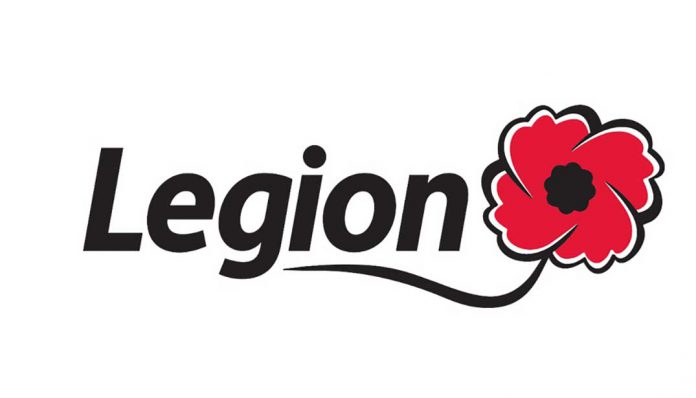TEHKUMMAH—Tehkummah council spent an hour at its February 19 meeting discussing its possible options to prepare a workable budget that would offer a balance of forward planning and a measured tax increase.
“What I want to achieve this evening is getting some very clear direction from council on what their priorities are, what kind of a budget we should be looking at, what kind of a mil rate increase we should be looking at, those types of things,” said clerk administrator Roy Hardy.
In order to provide an all-in budget with sweeping improvements to a number of services, the township would need to increase its tax revenues by as much as 16 percent. This will not be the tax increase ratepayers will receive for 2019, but it shows the distance Tehkummah will have to travel over several years in its efforts to stabilize its financial position and plan for the future.
Mr. Hardy brought the most recent draft budget to the council table and elaborated on some supplemental items that will need to be added to the upcoming year’s expenses, such as repairs to the township’s grader (which could cost upwards of $15,000) and an $8,000 contribution to government funding it received for office renovations.
He went through the budget from a high-level perspective so council would better understand its position, could ask questions and share its priorities and ideal tax rate changes for 2019. Mr. Hardy highlighted certain services that have incomes which are currently less than their operating costs, where user access rates could be increased to bring in more revenues. This included marina slip prices, landfill usage fees, camping revenues and a possible water and sewer surcharge to pay for future water system improvements.
Moving to expenditures, Mr. Hardy said he had reduced staffing costs in certain areas that could be cut. He added the township would be using its staff hours more effectively as well.
Another significant and non-negotiable budgeted expense was the township’s 10 percent contribution towards an Ontario Community Infrastructure Fund (OCIF) grant for the 10th Sideroad improvements, a contribution totalling $208,723, should the funding be approved.
Audit costs will be reduced this year with better organization at the township level, but there is still one outstanding piece of litigation—the Government Road bridge—the township will have to face in 2019.
There was another expense item that had not been previously included—the township will begin to charge itself for water usage to enable better tracking and management of its own consumption.
One thing is for certain—Tehkummah’s taxes will be going up this year. Tax rates are made up of two elements: property assessment values and “mil rates” (alternatively spelled mill rates), or the amount charged per $1,000 worth of assessed value. This rate is set by the township based on its budget needs.
The Municipal Property Assessment Corporation (MPAC) determines the value of properties within the township and the mil rate is applied to that figure.
For 2019, MPAC has raised assessment values in the region by 6.1 percent, which will mean higher property values and therefore more tax revenue for the township. A municipality has the freedom to adjust its mil rate up or down to either enhance or offset an assessment change, depending on its financial needs.
Mr. Hardy told council that some other Island municipalities had been looking at increasing their mil rates by one to two percent.
Councillor Rick Gordon said his top three priorities were replacing the fire truck, ensuring the roads crews had the equipment they needed and making money off the landfill.
Councillor Michael McKenzie told council that he had taken a very hard look at the budget and proposed tough measures to bring expenses down.
First, he raised concerns that gas sales at the marina were resulting in a loss to the township, something he said should not be happening.
“Every gas station makes money selling gas, and we should make some too,” Councillor McKenzie said.
He then suggested halving a $20,000 allocation for a pickup for the roads department; he said $10,000 could still afford a 10-year-old, two-wheel-drive truck. He then said he would be willing to sacrifice the council’s honoraria to save the township $24,000.
“Wipe us to zero,” he said. “Every one of us said, when we were running for this office, that we had the best interests of the township in mind.”
“That’s not for me,” responded Councillor Gordon after a few moments of silence. Reeve Jaggard said he had discussed with Mr. Hardy the possibility of reducing council meetings to one per month, after the budget is passed.
“That in itself would save $1,000 a month if we only had one regular meeting,” he said, noting that making that change would require an update to the township’s procedure bylaw.
Reeve Jaggard then asked council once more for their highest priorities so Mr. Hardy would have more direction in preparing the next budget draft.
Councillor Eric Russell suggested exploring the possibility of leasing out the marina, saying that from his perspective, it would never make money again.
The councillors discussed how busy the marina had been in years past and Councillor Leeson said it had not been maintained as well as it should have been.
“For the years that it was just used and making money, no money went back into it for (the) future. That’s where the problem was. And then when things started to break down, there was no money,” she said.
Mr. Hardy said increasing the user fees for the marina may be an option to increase revenues, adding that the marina currently operates at a $20,000 loss.
Councillor Leeson stressed the significance of having seasonal slip rentals for financial security and guaranteed income. She also said certain locations such as Gore Bay offer a slip discount for taxpayers of the town.
Councillor Leeson also said the John Budd campground rates were incomparable to anywhere in the area, which could be a place to increase revenue.
Councillor McKenzie said that although the revenue increase ideas were positive, their benefits were miniscule compared to the cuts that the township would require in the proposed budget.
“We’re talking the possibility of 15, 16 percent total increase on our taxes, between the mil rate and the assessment increase. We’ve got to cut some dollars. Some real dollars,” he said.
Mr. Hardy asked Councillor McKenzie what sort of tax increase he would be comfortable with, to which he replied a maximum of four percent in the mil rate (which would mean a 2019 tax burden increase of 10.1 percent).
“Our taxes here have been held down for a long time, and that’s why we end up with the equipment that’s ancient and the roads that are deteriorating,” he said. “Our taxpayers are going to have to understand this here. I’m not happy about what I’m proposing, of 10 percent. But we have to get back on track.”
“I think for years they didn’t raise the taxes at all, and that was a big thing, that they didn’t raise the taxes. But now we’re paying for it,” said Councillor Russell.
“There was a year when taxes went down,” added Councillor McKenzie.
Reeve Jaggard asked if council would be okay with a 2.5 to three percent mil rate increase, based on suggestions from Mr. Hardy.
“I would be satisfied with that as a taxpayer, but as a councillor I believe we’re going to be cutting stuff that we can’t afford to cut,” said Councillor McKenzie.
Councillor Gordon said he would be okay with anywhere between a three and four percent increase in the mil rate.
“We’re basically asking Roy to take $88,000 out of this,” said Councillor McKenzie. “I’m sorry, but with me cutting what I had planned, heck, I only came up to $74,000—and that was severe cuts. That’s our honorarium gone, that’s $45,000 away from the fire department, $10,000 away from the pickup truck,” Councillor McKenzie said.
“I say we give it to Roy at a three percent (mil rate) increase, see what he can do with that,” said Councillor Russell.
Mr. Hardy said he would take the three percent mil rate increase as direction and make calculations for the next budget draft. That draft will identify what cuts had been made.
“Then, you can decide yes or no from there, based on what you generally talked about as being your priorities,” he told council.
Reeve Jaggard asked Councillor Leeson for her thoughts on the possible nine percent overall tax increase for the next draft.
“I hurt. It’s tough, it’s very tough,” she said, adding that she still believed in increasing revenues before cutting budget items from the township.
“I certainly don’t think you can go any higher than that. I really don’t,” said Councillor Leeson.
Council voted to have Mr. Hardy explore a three percent mil rate increase, in addition to the 6.1 percent MPAC assessment increase, for a total of an approximate nine percent total tax levy increase. Mr. Hardy will bring the updated draft budget to the next regular council meeting on March 5.





